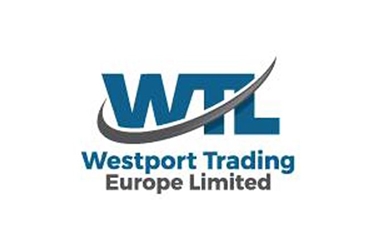On Wednesday, 5 April, a meeting of the Turkmen-American Business Council was held in Ashgabat. The delegation of US businessmen includes Nikolay Yurchenko, Chairman of the Management Board of Westport Trading Europe Limited.
In an interview with the newspaper “Neutral Turkmenistan”, he spoke about promising projects that can be implemented in Turkmenistan in the field of processing of hydrocarbon raw materials through the construction of high-tech industries. Here are some excerpts from his interview:
Needle Coke
“We would like to present to the attention of Turkmen specialists our basic engineering developments in the areas that were discussed and agreed with the experts of Turkmen Oil Refineries Complex, and which we have the opportunity to implement in the shortest possible time. First of all, this is a project on production of needle coke and, in the future, on its basis, to create a production of graphite electrodes using the capacities of TORC. Needle coke is a highly structured carbon product with a low content of metals and sulfur obtained by refining oil.
Needle coke is an extremely scarce and highly demanded product on the global steel production market. Today, the global demand for needle coke significantly exceeds the supply. Graphite and its derivatives are actively used in the nuclear, metallurgical, chemical, and space industries.
A limited number of suppliers on the world market offer needle coke offers, the largest of them are the American ConocoPhillips, the Japanese C-Chem Co Ltd and the Chinese PetroChina Company Limited.
Due to the increasing shortage of needle coke, as a consequence, the situation on the market of graphite electrodes is complicated. Therefore, we believe that Turkmenistan has good prospects for entering the international market with a high-quality product that is in demand all over the world.”
Hydrogen production
“We can also offer hydrogen production. The unlimited possibilities of Turkmenistan allow us to develop the industrial production of the fuel of the future. Until now, most of the hydrogen produced is used in the chemical (hydrocracking of crude oil) and food (hydrogenation of vegetable oils) industries, as well as in a number of other industries, which is based on the ability of hydrogen to enter into catalytic hydrogenation reactions at elevated temperatures.”
WTL is implementing a project for the construction of a rectification plant for a mixture of gas condensate and oil
“Based on the conducted research and consultations with the engineers of TORC, WTL Corporation proposed a project for the construction of a new rectification plant for a mixture of gas condensate and oil (electrical desalting plant) with a capacity of 1 million tons at the Seydi oil Refinery. We won the state tender for its construction.
The new installation will ensure the continuous operation of the existing and prospective units of the Seydi Refinery, improve the quality of petroleum products, stably supply the refinery with high-quality raw materials and guarantee its trouble-free operation. The approximate start of the project is 2024.”
The construction of a complex of delayed coking and tar de-asphalting plants to complete soon
“Now we are completing the construction of a delayed coking and tar de-asphalting units at the Turkmenbashi Oil Refineries Complex. The delayed coking unit is designed to process all heavy residues at the plant (tar, oil sludge, asphalt and other residual products) into more valuable light petroleum products (gasoline, diesel fuels) and creates basis for the future building a highly environmentally friendly installation for the production of needle coke.
The project provides for a number of measures that minimize the impact on the environment. After the project is completed, the level of atmospheric air pollution in the plant’s vicinity will not exceed the sanitary and hygienic standards.
During the operation of the installation, there is no direct anthropogenic impact on surface and groundwater and industrial effluents, atmospheric precipitation will not be discharged into underground aquifers.” ///nCa, 6 April 2023
